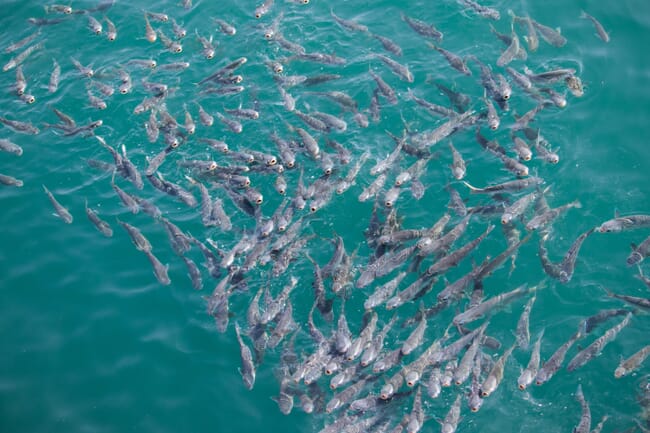The researchers, from India’s Central Institute of Fisheries Education (CIFE), conducted a 60 day feeding trial to illustrate the effect of graded levels of protein on the growth and metabolic enzymes of grey mullet (Mugil cephalus) fingerlings reared in inland saline water.

Six diets, which contained from 240g to 340g of crude protein per kg, were formulated and fed to triplicate.
The trial revealed that the percentage weight gain, specific growth rate, protein utilisation efficiency, feed efficiency and RNA:DNA ratio were significantly higher (p < .05) in those diets containing 300 or 320g of protein. Those fed diets containing 240g of protein for kg showed significantly higher (p < .05) feed intake, whole‐body lipid content, hepatosomatic index value and liver glycogen content.
In terms of metabolic enzymes, the researchers noted that transaminase enzymes and malate dehydrogenase activities were elevated in fish fed diets containing 340g of protein per kg. Protease activity increased with increasing dietary CP level, but amylase activities showed an inverse relationship. No significant (p > .05) variations were observed for lactate dehydrogenase, oxidative stress enzymes, blood parameters and serum osmolality among all the treatment groups, but red blood cell count increases with increasing dietary CP levels.
The researchers concluded that: “Based on the results, feeding dietary protein level of 300g per kg is economically viable for rearing of grey mullet in inland saline water.”
Further information
The study was published in Aquaculture Nutrition under the title, “Effects of dietary protein on growth performance, nutrient utilization, digestive enzymes and physiological status of grey mullet, Mugil cephalus L. fingerlings reared in inland saline water”. The abstract can be accessed here.


